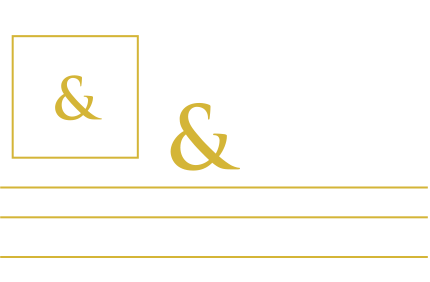Resource Center
Misconceptions About Estate Planning
Questions and Answers to the Most Common
Estate Planning Questions!
Am I too young to worry about Estate Planning?
No! When you are young, it is important to map out an estate plan in order to protect your loved ones. Families with young children especially should be thinking about:
1) Who should serve as guardians of their children, and
2) How will my children be supported in the event of a parent’s death.
Families with older children too should plan to ensure their children are properly launched in life, planning for college expenses, first jobs, and starting families of their own.
Is my estate too small to need estate planning?
If you estate is fairly small, it will likely suffer a greater percentage of shrinkage from final expenses and probate costs than a larger estate. Proper planning means making sure you save every last dollar from unnecessary probate costs. If your estate is over $50,000, you likely need to have an estate plan.
How do I know if I only need a will?
Depending upon whose statistics you read, only about 40 to 60 percent of the population has a will, and it’s true that a will is a must in every estate plan. But understand, a will guarantees the probate process. To avoid the probate process, use a funded revocable living trust as the centerpiece of your estate plan with a pour-over will as a supporting document, not the centerpiece.
What are the benefits of a revocable living trust?
A fully funded revocable living trust allows the trust maker to retain control of his or her estate planning affairs while avoiding probate and its related pitfalls. Control, cost, convenience and confidentiality are the four primary reasons many people turn to trust-centered estate planning.
1. Control- giving what you want, to who you want, when you want
2. Cost- avoiding costs of probate, including court costs and attorney’s fees to probate a will
3. Convenience- you make your plan according to your wishes during your life and watch as those plans are carried out.
4. Confidentiality- a trust keeps your wishes out of the public domain
What happens if I do no estate planning?
If you do not have a will or living trust, the state where you live has an estate plan for you. Should you become disabled, the court will choose and appoint a conservator to inventory, appraise and manage your assets and report the information to the court. That information then becomes public record. There will be attorney and conservatory fees imposed against your estate. When you die, your estate will be subject to probate. Your assets will be valued and listed in the public record. Creditors will be individually notified of their right to make claims. In addition, the administrator and attorney will each be entitled to a fee. Once all of the creditors, your administrators and your attorney have been paid, your assets will be distributed to your beneficiaries according to the preferences set forth in your state’s statutes (the law of interstate succession).
Can you summarize the general duties of trustees?
Some of the general duties of a trustee include:
1. Preparing a complete inventory and valuation of the trust assets
2. Obtaining a federal tax number from the IRS
3. Paying applicable expenses (medical, funeral, etc.) along with taxes (federal estate tax and inheritance tax)
4. Dividing and allocating assets to the sub trusts created in the trust if required by the terms of the trust
5. Distributing assets according to the directions of the trust
6. Preparing accountings as may be required
Does Medicare cover the cost of nursing home care?
At best, Medicare will pay the costs of a nursing home for a limited period of time only. There are often disagreements as to the definition of “skilled care”, and they frequently result in disputes over whether the patients qualifies for Medicare payments.
What is Medicaid planning and how does it relate to my estate plan?
Medicaid planning involves the structuring of an individual’s income and assets to attempt the ensure eligibility for benefits available under Medicaid. Each state, along with the federal government, places limits on the assets and income one can own while still remaining eligible for Medicaid. If your assets exceed the limits of Medicaid, they must be properly disposed of.


